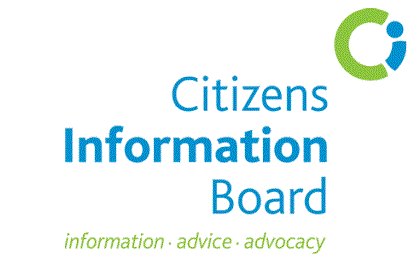Citizens Information – ‘Fair Deal Scheme’

I need full-time care in a nursing home. What help can I get with the cost?
You can apply for financial support to help pay for the cost of care in a nursing home through the Nursing Home Support Scheme, also known as the Fair Deal scheme.
Under this scheme, you pay a certain amount towards the cost of your care in a nursing home and the Health Service Executive (HSE) pays the rest.
The scheme does not cover short-term care – such as respite, convalescent or day-care – or extra fees charged by the nursing home for services like hairdressing, therapies or activities.
Am I eligible for the Fair Deal scheme?
You must be ordinarily resident in Ireland and need long-term nursing home care. You need to be approved for the scheme before you can get funding for a nursing home.
When you apply, the HSE assesses:
Your care needs, to make sure long-term care is what is best for you
Your financial situation, to see what you can pay towards the cost of nursing home care.
How much do I pay towards the cost of nursing home care and how much does the HSE cover?
The HSE assesses your income, cash assets and non-cash assets (including your home and property) to work out how much you pay towards your care. The assessment does not count the first €36,000 of your assets (€72,000 for a couple).
You pay 80% of your income towards your care (except rental income from your home on which you pay 40%), minus deductions from your financial assessment (such as income tax and health expenses) and you pay 7.5% of the value of your assets per year.
Some assets, including your home and your farm or business, are only included in the financial assessment for the first 3 years you are in care. This is known as the ‘3-year cap’. It means that you pay a 7.5% contribution based on the value of certain assets for up to 3 years.
How do I apply for the Fair Deal scheme?
To apply, you should complete the Nursing Home Support Scheme application form (pdf) and send it to your Local Nursing Home Support Office.
If you need help with the application, you can contact your Local Nursing Home Support Office.
Read more about the Fair Deal Scheme on https://bit.ly/fair-deal-scheme or call us on 0818 07 4000 (Monday to Friday, 9am to 8pm).How your income tax is calculated.
I got a pay increase recently and now my income tax has gone up. Why is this?
Tax is charged as a percentage of your income. The rate of tax you pay depends on your income, so if your salary increased and your income tax also increased, you may now be getting taxed at a higher rate.
What are the different rates of tax?
Income is taxed at two rates: the standard rate of tax and the higher rate of tax.
The standard rate of tax applies to the first part of your income – up to a certain amount; this is taxed at 20%. The higher rate of tax applies to the rest of your income, and this is taxed at 40%.
How do I know how much of my income is taxed at the higher rate?
The amount you can earn before you start to pay the higher rate of tax is known as your standard rate cut-off point.
This cut-off point depends on whether you are:
A single person: first €40,000 at 20%, and the rest at 40%
A lone parent: first €44,000 at 20%, and the rest at 40%
Married/civil partners with one income: first €49,000 at 20%, and the rest at 40%
Married/civil partners with two incomes: Up to €80,000 (this depends on the amount of the second income), and the rest at 40%
Other factors can also affect the cut-off point, for example, if you have another source of income that has not been taxed at source.
How do I calculate my income tax?
Before calculating your income tax, subtract the following from your income:
Pension contributions
Payments to a Permanent Health Benefit Scheme (to a maximum of 10% of your income)
Higher-rate tax reliefs
Tax is then calculated at 20% for income below the standard rate cut-off point, and at 40% for any amount above the cut-off point. This gives you your gross tax.
Your tax credits are then subtracted from this figure to give you the amount of tax you must pay.
If you have tax allowances at the higher rate of tax, your employer may reduce the tax you pay at the higher rate by increasing your standard rate cut-off point.
Are there tax credits I can claim to reduce the amount of tax I pay?
You may be entitled to various tax credits depending on your personal circumstances. You can check your tax credit certificate on Revenue’s MyAccount online service to see what tax credits you get.
Read more about how income tax is calculated on https://bit.ly/IncomeTaxCalculated or call us on 0818 07 4000 (Monday to Friday, 9am to 8pm).
Know Your Rights has been compiled by South Connacht Citizens Information Service CLG, which provides a free and confidential service to the public. Tel: 0818 07 6330 Address: Boyle CIC, Elphin Street, Boyle, Co. Roscommon
Information is also available online at citizensinformation.ie and from the Citizens Information Phone Service, 0818 07 4000.


